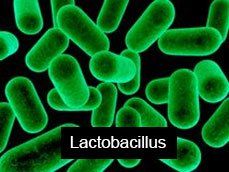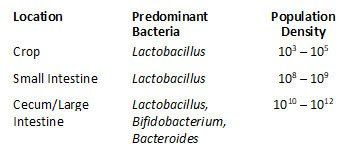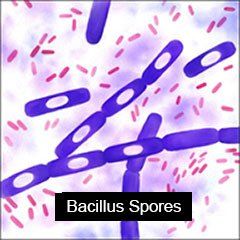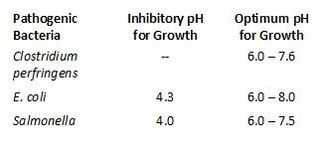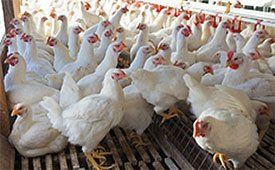Probiotics for Chickens and Turkeys
Supplying probiotics for chickens and turkeys has become an important practice. The direction of raising chickens and turkeys with less dependence on medications and antibiotics has increased the focus on understanding the microflora balance in the gut. Both beneficial and pathogenic bacteria are continually present. So, it is important to implement supplementation strategies that promote a balance favoring the beneficial bacteria in order to have healthier birds.
Probiotics for chickens and turkeys
have been defined as “living microorganisms which when administered in adequate amounts confer health benefits to the host” (FAO/WHO 2001). The general objective of probiotic supplementation is to supply bacterial strains that a) promote lactic acid production, b) compete with pathogenic bacteria for space, nutrients and attachment sites, and c) produce anti-microbial compounds that inhibit the growth of pathogenic bacteria. For these reasons the most common strains supplied are those of Lactobacillus, Bifidobacterium, Enterococcus faecium, Pediococcus and Bacillus.
The predominant beneficial bacteria strains in each segment of the digestive tract vary. The density of the bacterial population increases toward the distal end of the tract.
Beneficial Probiotics for Chickens and Turkeys Supplementation Strategies
POST-PLACEMENT
Chicks and poults establish their gut microflora during the first week post hatch. They inoculate their gut by the bacteria they acquire from their environment. The litter and water supply provide significant sources of inoculation. So, a vital time to influence the gut microflora balance is to provide probiotics for chickens and turkeys during the first week post-placement to supply a predominance of Lactobacillus. Development of a Lactobacillus dominant gut microflora inhibits growth of pathogenic bacteria and promotes a healthier bird.
in-VIGOR-ate®
supplementation provides an ideal probiotic for chickens and turkeys during this time. It supplies Lactobacillus acidophilus and Bifidobacterium longum to inoculate the crop and small intestine. Acidification by the citric acid promotes the desired pH environment in the crop that favors growth and reproduction of Lactobacillus that further seeds the small intestine with a larger population of the good bacteria.
FEED DISRUPTIONS
Various stresses such as bird movement, vaccinations, ration changes and out-of-feed events can result in a reduction in feed consumption. When this occurs, gut pH increases. The pH shift creates an environment favorable to more rapid growth of pathogenic bacteria including E. coli, Salmonella and Clostridia resulting in enteritis issues. The typical pH in the small intestine is 6.4-6.6 and in the cecum is 6.4-6.9.
Administration of in-VIGOR-ate®
during these stress periods helps lower the pH of the crop and small intestine. And it provides the supplemental probiotics for chickens and turkeys that will produce lactic acid to further lower gut pH that will inhibit growth of the pathogenic bacteria. Consequently, bird performance and health is supported.
